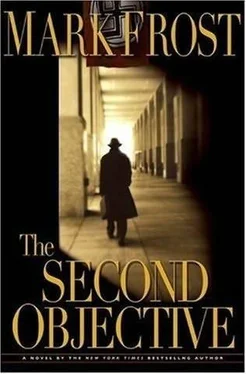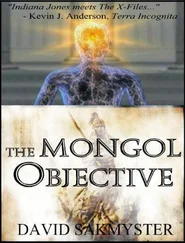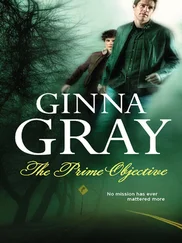“I’ll have to get back to you.”
“I’m going back to work,” said the surgeon. “They’re saying we got big trouble out there. That what you saw?”
“Trouble doesn’t cover it.”
“There’s talk we might have to pull out of here, if the damn army doesn’t chase its tail around before they’re on top of us. My staff can’t save lives in a German prison camp.”
The doctor left him alone with the bodies. Grannit set the cigar down and took a close look at the false Vincent Mallory. A second soldier with no ID killed in two days. Wearing a captain’s bars. Soft hands, a wedding ring. A new pair of boots, taken off one of the dead GIs at the checkpoint.
This was that second officer the MP spotted in the jeep at Elsenborn.
So why’d you kill this one, Lieutenant? He gets tagged along the way to wherever you’re going, all of a sudden he’s expendable, too? A superior officer? This wasn’t a fatal wound like your other man-buckshot in his shoulder and neck-but still you took him out.
Then why run the risk of taking him to a hospital? If you wanted him dead, why bring him here when you could just shoot him by the side of the road?
Unless you were still after the real Mallory. Is he what brought you here, you needed to finish the job? But how could you have known he survived Elsenborn? The way you left him, what were his chances? And why would you give this other man of yours his tags unless you thought the real Mallory was dead?
Because the sergeant’s surviving was a loose end you didn’t realize you’d left hanging until you got here, when your friend checked in wearing Mallory’s tags. Once you were inside, you found this out and killed them both.
He could leave the why for later. Grannit had seen the man who’d done this. The blond lieutenant. Standing in that jeep, waving at him.
Five murders in two days. A killer with the nerve to cut open Mallory’s IV and pour that poison into him, then do the same to his own man on his way out before Mallory was even dead.
Grannit’s eye was drawn to a magnifier mounted on a stand attached to the autopsy table, and he remembered the photograph he’d found in the other man’s boot. That led him back to this man’s boots, sitting under the table. He searched through them, found nothing inside; then, following a hunch, he pulled his knife and pried away at the heels.
The right heel came away in his hand. Hidden inside he found a folded piece of paper. On it was a hand-drawn map of a river and a bridge crossing, detailing access roads on both sides and defensive emplacements. A few words had been scribbled hastily in the margins, but Grannit couldn’t make them out. Arrows pointed to two other bridges, on either side, that were only sketched in, without detail.
Ole Carlson hurried into the tent, excited, holding up a plastic bag. “It took some doing but I found ’em, Earl. These are the bullets from Mallory. The real Mallory, not the fake Mallory.”
“I get it, Ole.”
Carlson’s eyes settled at the body on the table and turned away as if he’d been hit in the stomach, blood draining from his face. He opened his eyes and was looking straight down at Mallory on the other table. “Oh Lord.”
“You all right there, Ole?”
“Not so good, actually.”
“Close your eyes and breathe.”
“I would, but the smell is sort of a problem.”
“Can’t help you there,” said Grannit.
Grannit put the spent shells under the magnifier. One was badly damaged, little more than a shapeless lump, probably the shot that shattered Mallory’s jaw. The others were pistol rounds, and at first glance he knew they were.45s from a Colt, a U.S. officer’s sidearm. But they also bore peculiar rifling, as if they’d passed down an unusually long barrel.
“They pulled some buckshot from the fake Mallory there,” said Carlson, trying not to retch, keeping his eyes off the bodies. “Kind of strange, isn’t it? Who the heck is using shotguns out there? It ain’t duck season, I know that much. Dang, that smell could take down a bull.”
“You want a cigar or something?”
“No, thanks, a cigar would definitely make me puke.”
Grannit pulled out the photograph he’d found on the first John Doe and held it under the magnifier.
“Anyway, I finally got through to Twelfth Army,” said Carlson. “The phone lines are down; they think that’s the Krauts’ doing, so I got through to Twelfth Army dispatch on the radio. Krauts are coming at ’em down there, too-”
“Did you ask about the patrol?”
“Yeah. The Twelfth has no record of any patrol in this sector answering that description.”
“There’s a reason for that,” said Grannit.
“What is it?”
Grannit waved Carlson over to look at the photograph of the woman at the seaside scene under the magnifier.
Among the structures lining the dock behind her was a civic office building, probably the port’s customs house. Carved into the stone entablature over its entrance, in the center of a laurel wreath clutched in the talons of the German imperial eagle, was an elaborate swastika.
“Because they’re Krauts,” said Grannit.
Versailles, France
DECEMBER 16, 3:00 P.M.
Dwight Eisenhower was nursing a same-day champagne hangover. His valet, an ex-bellhop named Mickey McKeough, had married his Women’s Army Corps sergeant girlfriend that morning in the gilded Louis XIV chapel of the Trianon Palace Hotel on the grounds of the Versailles compound. Eisenhower told a friend that the diminutive bride and groom looked cute enough to decorate the top of their own cake. The reception went into the early afternoon, and when the bubbly ran out they dipped into the general’s private wine cellar. With only nine days left until Christmas and the front firmly in Allied control, few of the overworked staff at Supreme Headquarters of the Allied Expeditionary Forces needed an excuse to let off steam, but wishing Mickey and his wife well was better than most.
General Eisenhower had a more personal reason for indulging himself. A cable had arrived that morning informing him that President Roosevelt had placed his name in nomination before Congress for the post of General of the Army. This new rank would bring with it a fifth star and sole authority over the Allies’ entire armed forces in Europe. That much power had not been conferred on one soldier since the First World War. After sixteen years as a desk-bound major, Eisenhower had risen from lieutenant colonel to the army’s highest rank in a little over three years. The affable fifty-four-year-old Kansan had planned a private dinner that night to celebrate with some drinking buddies, among them one of his best friends and colleagues, General Omar Bradley. Bradley had arranged for a bushel of Ike’s favorite oysters to be flown in from the Normandy coast. Given their recent successes in the field, for the first time in two years, Eisenhower felt he could allow the weight of the war to slip slightly off his shoulders.
Eisenhower, Bradley, and four staff officers were in the Clemenceau Ballroom of the Trianon Palace at Versailles, which they used as their tactical map room. They were halfway through a relaxed meeting about how to speed up training and delivery of replacement soldiers from the States. Eisenhower drank coffee, chain-smoked, popped a handful of aspirin, and ate a big lunch, trying to negotiate away his headache from the morning’s champagne before the evening’s Scotch. He was already on medication for high blood pressure and stress. His left knee, sprained two months earlier and slow to recover, ached with the arrival of an early winter cold front. Outside, heading into the shortest days of the year, the sky was already beginning to darken.
Читать дальше












